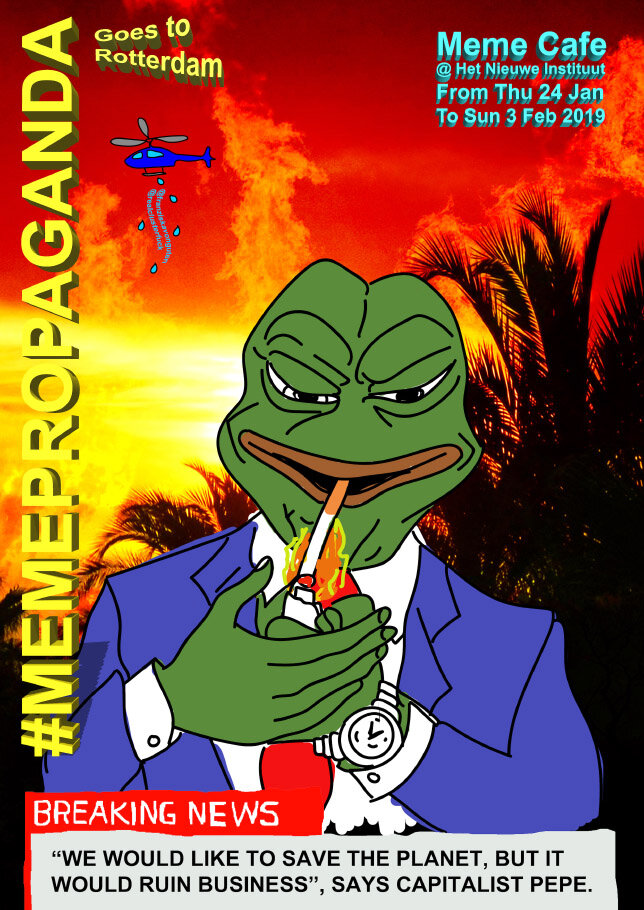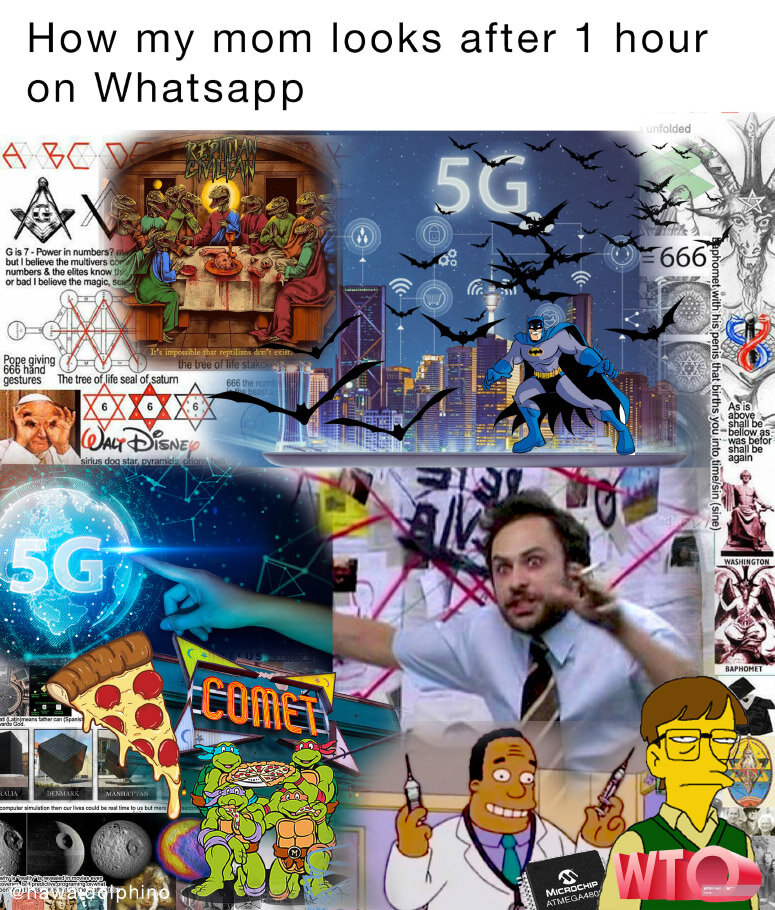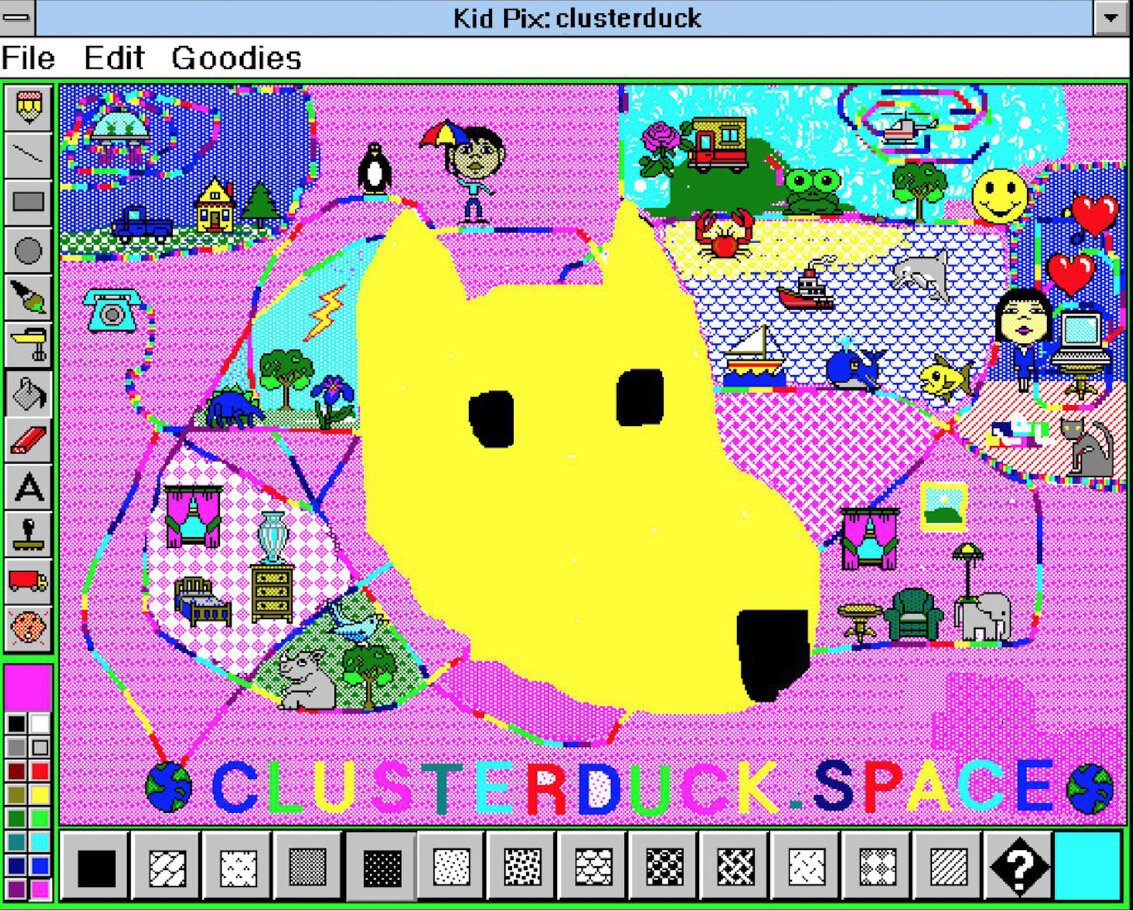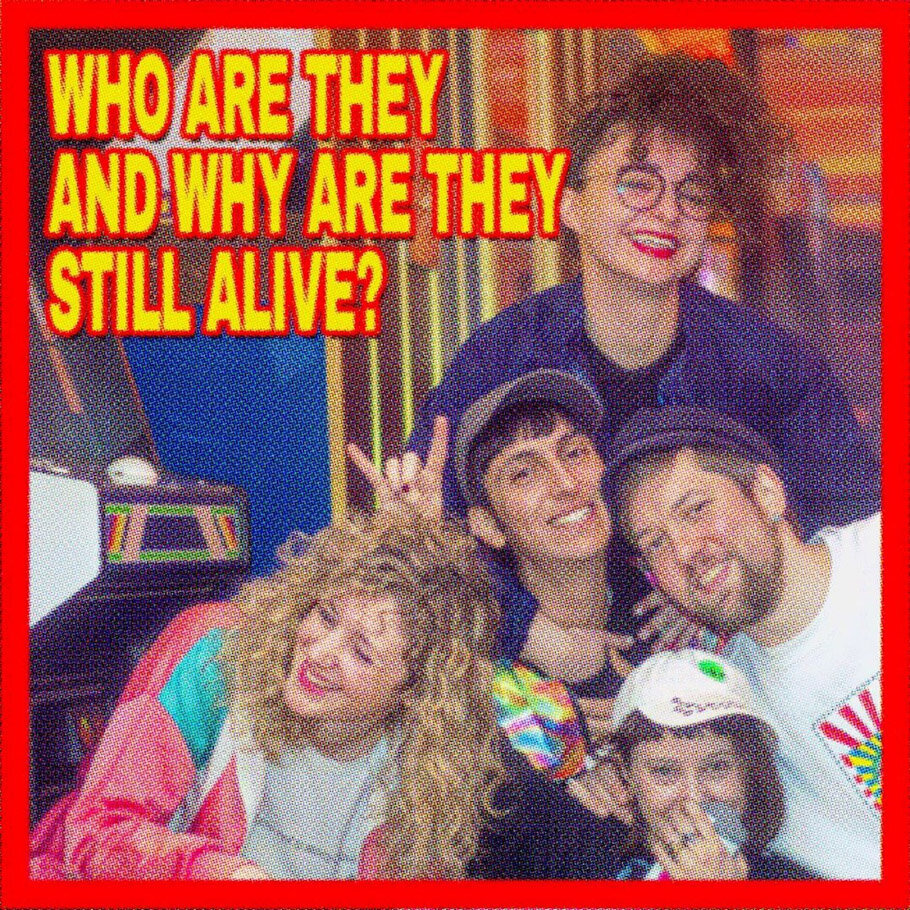Clusterduck
Surfing the internet through platforms like Facebook, Instagram, Reddit and TikTok – as well as the more niche and fringed communities such as 4chan, Discord or Telegram – that’s where Clusterduck sources its vast mix of cyber content. A collective of five founding members with around 40 collaborators from across the world, everything that Clusterduck finds and produces is about the internet, quite literally.
Working across memes, digital content, research, web design and video, the collective is driven by ‘ducking director’ Silvia Dal Dosso, ‘analytical engine’ Aria Mag, ‘participant observer’ Noel Nicolaus, ‘hoefessional pro’ Tomato Cappelletti and ‘badass internectual’ Franziska Von Guten. We caught up with this cluster of digital natives to find out more about their projects and what they think is in store for the future.
Let’s begin by hearing a bit more about what you do at Clusterduck.
We’re a collective of creatives and media workers, employed in the creative gig economy by day, and meeting online at night to cooperate on projects we love. We do a lot of field research and digital content curation, we create web pages, designs, datasets, video reportages, meme Ops; we love to involve our network in everything we do.
What were your reasons for launching the collective?
By talking and chatting amongst ourselves, we realised that something important was happening in the internet communities. We didn't know how to describe it, and maybe we still don’t, but we felt a big need to untangle this clusterfuck. To give you a hint, this was just a few months before the infamous Great Meme War happened; at the time, the whole mess of fake news and post-truth was just about to explode.
Later, we realised that our collaboration could already be considered a value in itself; we wanted to demonstrate that, in these fucked up times, cooperation was not only possible but necessary. We think this is why, right now, we are experiencing a proliferation of groups and collectives among millennials and zoomers – there’s a shared realisation that we have no hope of getting out of the mess we are in, unless we find new ways of doing things together. At the same time, we should never underestimate the difficulties of cooperation.
What’s the story behind the name?
As big fans of film directors Lana and Lilly Wachowski, we were all watching Sense8. Like the protagonists of the series, we had different skills and we felt like we could communicate almost telepathically (through the chats) while living in different cities.
Then, as we were looking for names for our project, we kept bumping into the word ‘clusterfuck’ in various contexts. It seemed like a very fitting term to describe both our own and the general situation, and it had applications in many fields. Soon after – because we were mostly working from our smartphones – autocorrect joined the brainstorm and created the final official name, Clusterduck. The strikethrough we use in the official logo was the final touch; it pays homage to the idea of the ‘error’ as being an important part of the creative process.
You speak of this hybridisation of online and real-life interactions – can you go into a detail about what this means?
From the beginning, we made IRL/URL projects because we realised that these two worlds are intertwined in an endless cascade of feedback loops, and they can positively influence each other. It actually doesn’t make too much sense anymore to think of them in dualistic terms. Whether it’s a party, an exhibition, a performance or a memetic operation, what we seek is the synergy between these two worlds.
We tried to kill this dichotomy, which is still very strong in the boomers’ way of coping with reality. In many of our projects, from our interactive and participatory exhibition #MEMEPROPAGANDA, to the IRL/URL party we did with Care Collective as the opening event of our Wrong Biennale Pavilion ‘Internet Fame’.
Tell us a bit more about this exhibition #MEMEPROPAGANDA.
#MEMEPROPAGANDA is a project born to cope with the aftermath of the Great Meme War and the victory of Trump in 2016. With a skilful work of revisionism and propaganda, the alt-right had appropriated a language that we felt as ours – the language of the internet, the memes, Pepe the Frog – so we felt the urge to take it back. While the mainstream press was clumsily trying to interpret a reality that can be very complex for outsiders, we started a collective project to explore and create new memetic counter-narratives.
What else are you currently working on?
#MEMEPROPAGANDA is still going on and its latest incarnation is #MEMERSFORFUTURE, an online and offline exhibition which we were invited to develop for the digital culture conference re:publica in Berlin. The project is an investigation into the use of memetics in the global climate justice movement.
Due to the coronavirus crisis, we had to change our plans, and the project had to be substantially modified, although we will still present it in an online video session on May the 7th, so watch out for announcements if you want to know more! We’re also currently developing the #DECAMEMERON, a smaller quarantine project about memetics and networking.
Where do you see the future heading, specifically in terms of internet culture?
Visually, we are waiting for a big return of that mega shitty vector art of early Y2K but with a new twist – maybe with a mix of the already mainstream acid design and classic rave stuff. We also wish for some solarpunk or punk in general because fuck society.
It seems like we’re heading for a new Middle Ages, with more occult conspiracy theories and ancient magic-inspired stuff. Everything that you saw on tumblr between 2007 and 2013 will constantly keep coming back and, considering the massive hygiene standards of the post-corona world, we think that cleancore will come back soon. Oh, and of course health-goths.In terms of real-world problems, a friend with a good eye for these things has told us that either the revolution or the end is coming, so brace for it. No future for you.
courtesy CLUSTERDUCK
interview AYLA ANGELOS
What to read next
















